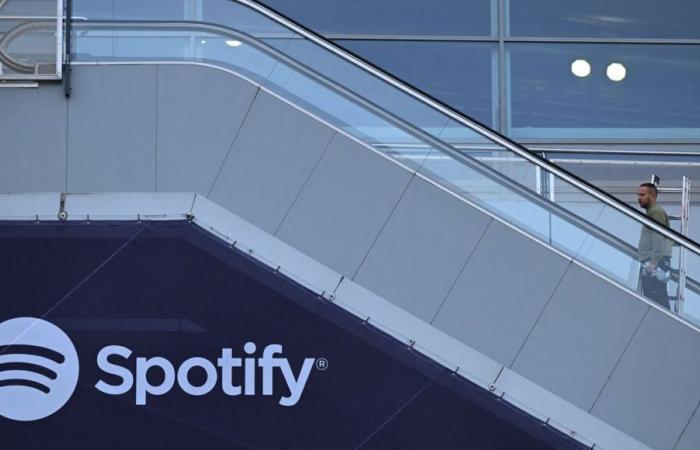This is what is happening to the audio book micro-market, which only represents 2% of the publishing sector in France, while this practice of listening to Books is already very widespread and firmly established in Anglo-Saxon countries. Saxons, but also in Sweden or Germany.
Arrival of Spotify on a French market…
This small French market is both turned upside down and boosted by the arrival of Spotify, the world number one in music streaming which offers its 7 million French subscribers twelve hours of listening to audio books each month. At no extra charge, they have had access to 15,000 books in French since mid-October. And more than 200,000 in English.
Spotify has signed agreements with around a hundred French publishers so that it is possible to listen to almost all of the new literary novels, such as Houris by Kamel Daoud read by Lola Neyma or even The Jaguar's Dreamread in three voices by the author Miguel Bonnefoy as well as Zelda Perez and Bertrand Pazos.
…already dominated by the American giants
Until now, the main player who reigns supreme but refuses to communicate a single figure is none other than Amazon. With its subsidiary Audible, the American giant offers a subscription formula which allows you to purchase a single audio book per month for 9.95 euros, from a catalog of 20,000 titles in French. Suffice it to say, don't make a mistake. Moreover, subscribers choose safe and reliable values, and do not venture to choose works written by authors they do not know. No risks but also a tendency to prefer the longest titles, like the more than 23 hours of the first part of the Comte de Monte Cristowhich give the subscriber the delicious impression that he is getting value for his money…
Alongside Amazon, the other main competitor is still an American juggernaut, Apple, which is limited to selling audiobooks at full price and individually on Apple Books. Other small players are also trying to find a place in the sun, like StoryTel or NexStory. The latter offers three subscription plans which give access to audio books but also to a very wide range of electronic books and magazines. The most expensive family plan, at 19.99 euros per month, allows, which is very practical, four users to each listen to a different audio book at the same time. Which is not yet possible at Spotify.
A shocking arrival…
Spotify is shaking up the situation because its offering makes it possible to discover more atypical formats, such as short stories, but also neglected genres such as Japanese literature or even to restore the appeal of books intended for children. Spotify is also the first to present its offer like a real bookseller, offering favorites, recommendations and playlists. According to all the audiobook publishers I've met, it's a way to rejuvenate and democratize their audience. It is also a valuable way to keep their catalog collections alive.
And for once, it’s a virtuous circle. The arrival of Spotify is unanimously welcomed by the managers of the audiobook subsidiaries at Hachette and Albin Michel, at Editis and at Gallimard. They are paid in proportion to their listening. Everyone considers that the arrival of this new entrant benefits the entire market since each player has its own unique DNA and targets a different audience.
Spotify has already launched its audiobook offering in ten Anglo-Saxon countries and in the United States alone, in just one year, it has contributed half to the insolent growth of this sector. For the record, the American market alone represents more than 37% of the global audiobook market, far ahead of Europe and China.
… but virtuous for the market
In France, the catalog of audio books was not up to par and did not attract enough audio readers. A classic case of the snake biting its tail, publishers, faced with an insufficient market, have not invested enough. Especially since producing an audio book costs much more than simply publishing a paper book. You have to pay the actor, rent a recording studio, employ technicians… This state of affairs is reversed today and the big publishers have increased the rate of releases. The arrival of Spotify facilitates these projects and Hachette for example plans to increase from 200 to 250 new releases per year from 2025 and Editis, the most prolific, will also increase its releases from 300 to 350 next year. From now on, for their most promising titles, publishers are releasing the paper book and the audio book at the same time. Thanks to these investments, this micro-market is showing very good growth, estimated at nearly 10% per year, where paper is struggling. A splendid progression but still not enough to sleep soundly.






